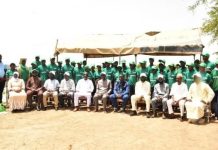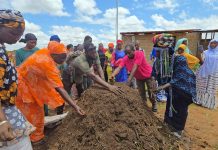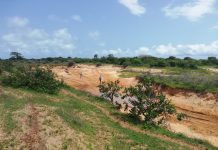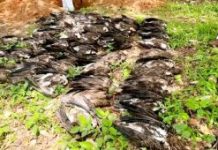By Ndey Sowe
Bakary Jallow, Deputy Executive Director of the National Nutrition Agency (NaNA), has announced that the rate of exclusive breastfeeding in The Gambia for infants under six months has increased from 48% in 2013 to 54% in 2019/2020. He attributed this progress to the strong collaboration between the government and development partners but warned that more must be done to meet the World Health Assembly’s target of 70% by 2030.
Jallow made the remarks on Thursday, August 7, 2025, during a press briefing held by NaNA with support from UNICEF to commemorate World Breastfeeding Week (WBW). The Gambia joins the global community in marking this weeklong event—celebrated from August 1st to 7th—which in The Gambia extends throughout the month of August.
The theme for WBW 2025, selected by the World Alliance for Breastfeeding Action (WABA), is “Prioritize Breastfeeding: Create Sustainable Support Systems.” This year’s focus highlights the intersection between breastfeeding, environmental sustainability, and climate resilience.
“The World Alliance for Breastfeeding Action, the World Health Organization, and UNICEF initiated World Breastfeeding Week to promote exclusive breastfeeding for the first six months and continued breastfeeding up to two years or beyond,” Jallow explained.
He noted that breastfeeding offers a range of health benefits, including vital nutrition for infants, protection against diseases such as pneumonia, reduced food insecurity, and healthy growth and development. He emphasized that scaling up support systems is vital to build on current gains.
Fatou Darboe, Programme Manager for Nutrition and School Health at NaNA, echoed the call for deeper engagement beyond short-term campaigns. She stressed the need for sustained, system-wide interventions that embed breastfeeding within the core of national health and development agendas.
“In The Gambia, while we’ve made progress, exclusive breastfeeding rates stand at 54%. However, early initiation within the first hour of birth remains low at 36%, according to the 2019/2020 Demographic and Health Survey,” Darboe said. “We need to change that—not with sporadic messaging, but with long-term action.”
She also reminded the public that breastfeeding is not solely the responsibility of mothers. “By prioritizing breastfeeding and building sustainable systems, we can ensure that every child gets the best start in life, and no mother is left behind. Let us make breastfeeding not only possible, but easier, celebrated, and sustained.”
According to WABA, breastfeeding is a natural, sustainable, and environmentally safe method of feeding. It requires no packaging, processing, or transportation, making it a low-impact alternative to artificial infant feeding systems that contribute significantly to environmental degradation.
However, experts warn that breastfeeding can become difficult when parents lack accurate information and adequate support. WBW 2025 promotes the Warm Chain of Support for Breastfeeding, a framework that places the needs of mothers and children at the center of all support efforts, calling on communities, health systems, policymakers, and families to play active roles.
As The Gambia celebrates World Breastfeeding Week, stakeholders emphasize that creating enabling environments for mothers is not just a health imperative, but a national investment in human capital, climate resilience, and long-term development.




















